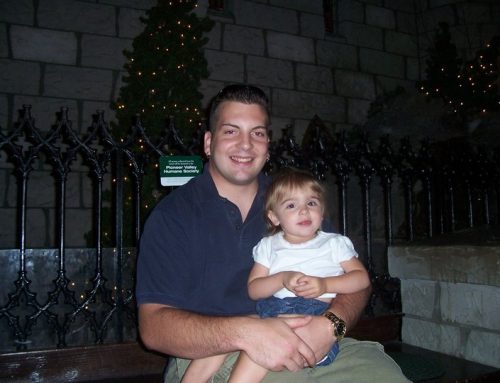By Laura Greenstein (NAMI.ORG)| Jun. 20, 2018
Each year, there are about 5 million visits to emergency departments due to mental illness. Five million people whose symptoms escalate to the point of crisis. Five million people who don’t understand what’s going on or what to do and rush to the ER.
However, this number doesn’t include the people who experience mental health crises without going to the ER—people who are scared and unsure if their situation is a “true emergency.” This number also doesn’t account for the caregivers and loved ones of those experiencing a mental health crisis, standing beside someone they care for, watching them struggle, unsure of how to help.
Mental illness is unpredictable by nature and crises can, do and will happen. Although these crises can’t always be prevented, it is possible to be prepared.
Learn As Much As You Can
The first step in being prepared is gathering any information, resources and support that is available. Start by fully understanding your loved one’s condition: What are the primary symptoms? How can you tell if symptoms are getting more severe? What can you do to support them? And the list goes on. It can be helpful to go with your loved one to see their mental health professional, so you can ask these questions and any others you may have.
Next, learn more about what a mental health crisis is and what to expect when one occurs. NAMI’s new guide: “Navigating a Mental Health Crisis: A NAMI Resource Guide for Those Experiencing a Mental Health Emergency” is a great resource. This free, downloadable guide offers practical strategies on how to deescalate a crisis, information about available resources, tips for advocating for a person in crisis and a sample crisis plan. Details like these are often critical in supporting your loved one during a crisis.
Make A Crisis Plan
Creating a crisis plan should be a collaboration between your loved one and you. The best time to develop this plan is when things are going well. Take the time to ask them questions that will help build a crisis plan, like: What would be most helpful for you? What would you like to do? Who would you like to call? Waiting to ask these important questions can make it difficult to make decisions during a crisis episode.
A crisis plan should include:
- Your loved one’s general information (date of birth, social security number, insurance information, etc.)
- Current medications and dosages
- Current diagnoses
- History of suicide attempts, drug use or psychosis
- Addresses and contact information for nearby crisis centers or emergency rooms
- Contact information for health care professionals
- A determined behavior/symptom that would prompt going to the hospital or calling 911
Once you create a plane, share it with family members, mental health professionals or anyone else you think should have it. Make sure to update it whenever there is a change in diagnosis, medication, treatment or provider. A crisis plan can be a life-saving resource, so keep it up-to-date and in a safe place.
Notice Behavior Changes
A person with mental illness will typically experience changes in their behavior before a crisis occurs, such as sleeplessness, mood swings or paranoia. These changes are warning signs and shouldn’t be ignored. “Psychiatric illnesses, for the most part, evolve slowly, so there’s going to be a lot of warning,” says Dr. Daniel Lieberman to U.S. News and World Report.
If you notice warning signs, talk to your loved one and encourage them to visit their treating mental health care professional or doctor. “If somebody has a relationship with an outpatient psychiatrist, that’s the first place to go,” Lieberman says.In many cases, there might be enough time to get in contact with a provider before escalating symptoms become a crisis.
Mental health crises can be frightening for everyone involved. However, being prepared can take away some of the fear and uncertainty around what to do and how to help your loved one. Your preparation and support alone can help deescalate a crisis situation—just knowing you’re there, as a stable force, can be an enormous comfort.



[…] chest feels tight, they can’t breathe, it almost feels like they are having a heart attack. It’s up to you to know how to help someone having a panic attack to help them […]